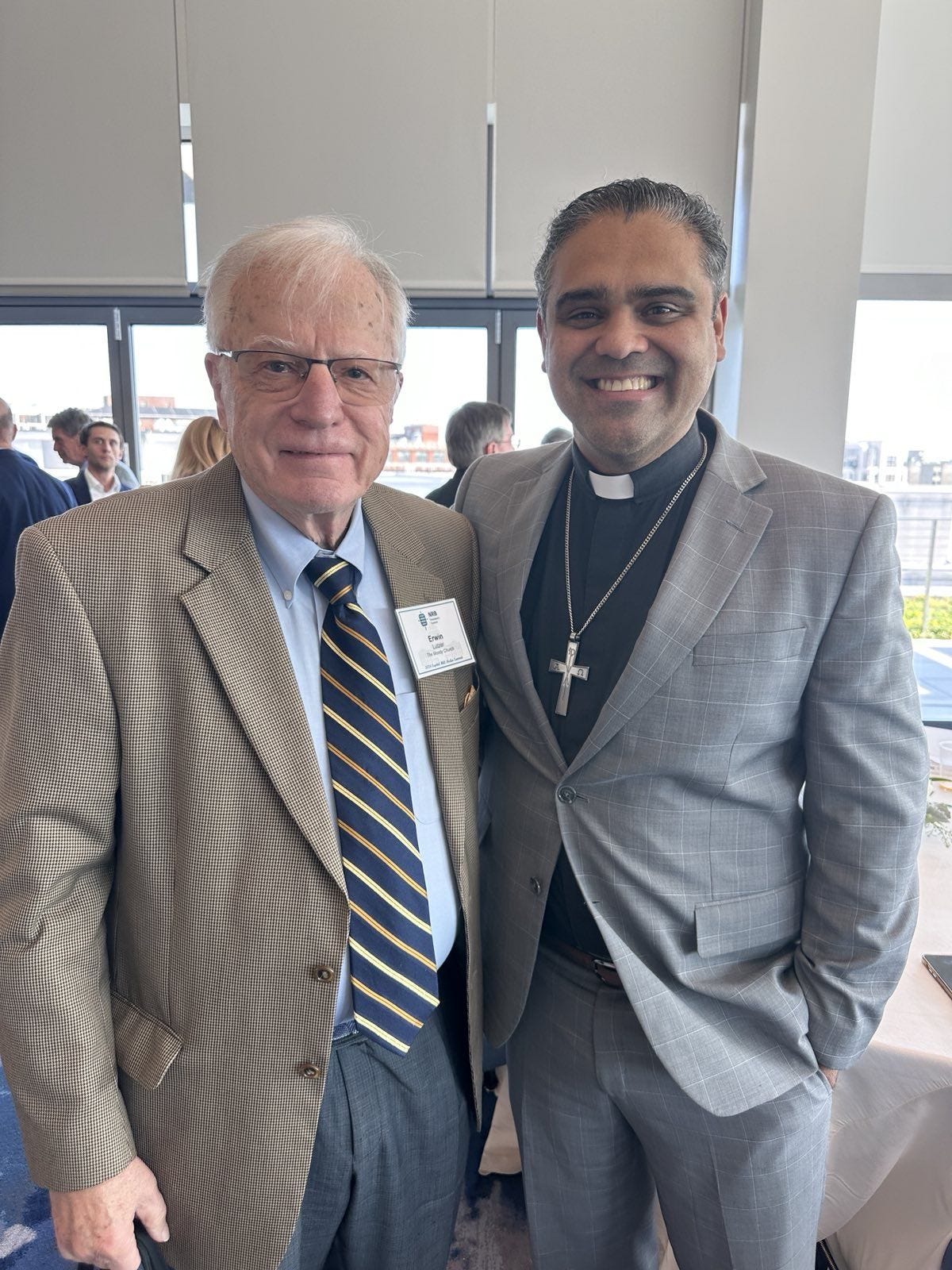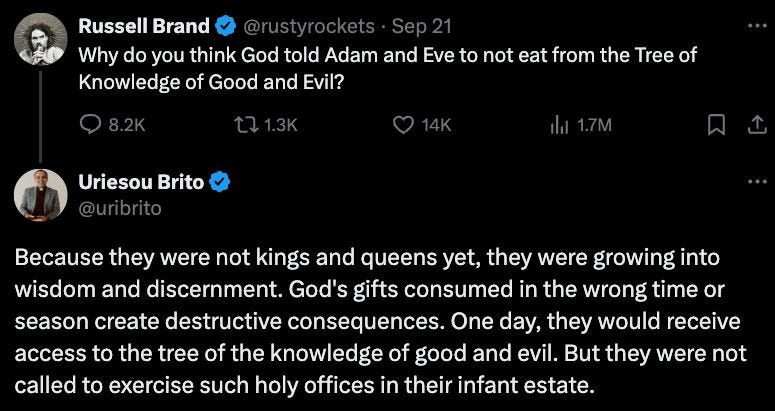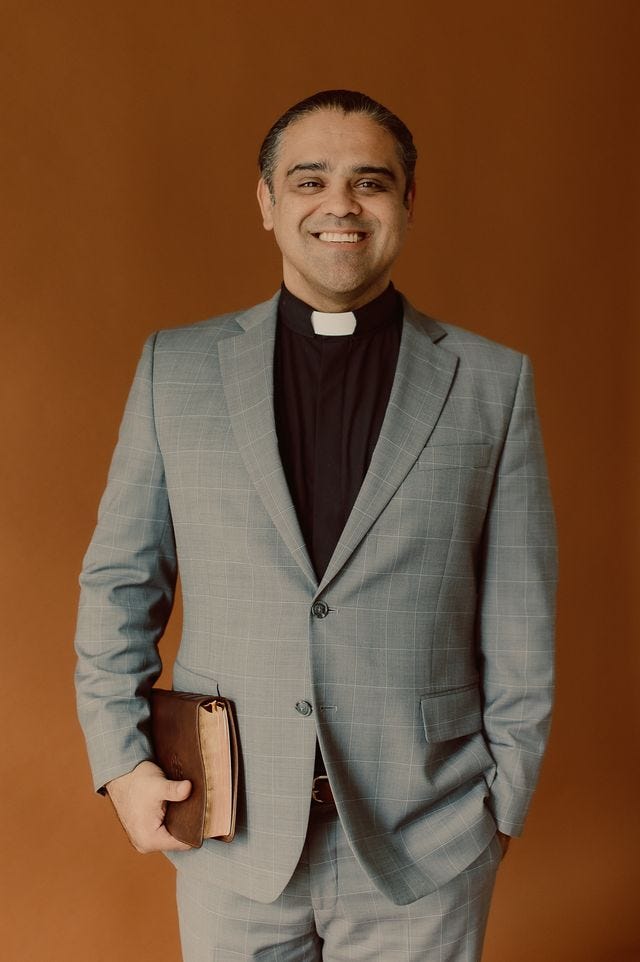Steve Lawson, Celebrity Culture, and the Minister's First Calling
We have been taught that a select tribe of ministers have secret knowledge that others do not. We might call this a form of pastoral gnosticism.
The fall of Pastor Steve Lawson will continue to be a source of great sadness for many of us. Perhaps the element that strikes us with such sorrow is that he was in the latter part of his pastoral ministry—the season when one can find contentment in a life well lived. We don’t know much about what happened, and I suspect we will soon enough. But any response that appears too mighty, giving off the vibes of invincibility, should be highly cautious. I have seen Voddie Baucham’s observation floating around with remarkable consistency and worthy of consideration:
It is right and good that every minister take heed lest he fall ( I Cor. 10:13). Mark Jones made a salient observation in his sobering article:
The gospel of free grace to unworthy sinners that Lawson has preached to thousands is the gospel he now needs for himself more than ever.
My hope is that Steve will put his faith in his God and draw his wife and family ever closer in the days and months ahead. Lawson preached a faithful Gospel for a long time, but his life will be forever marred by sexual sin. A minister is to be above reproach, and there are certain sins from which one cannot recover his reputational purity.
Celebrity Culture
This situation has sparked a necessary introspection into the role of celebrity culture in our evangelical ethos. While we may never know if the celebrity aspect played a role in Lawson’s fall, we must be aware that our current structure is unhealthy. This realization should encourage us to reflect on our own calling in an age of personality exaltation. As Jones notes:
We also need to re-evaluate the celebrity-culture that continues to exist because parachurch organizations persist with their selective inbreeding whereby the same men are platformed repeatedly so that we begin to think that they have something to tell us that ordinary pastors can’t.
We have been taught that a select tribe of ministers has secret knowledge that others do not. We might call this a form of pastoral gnosticism. The bigger their platforms, the bigger their ability to reveal something astonishing about the ministry.
Such falls from well-known figures allow pastors to contemplate their calling more deeply and consider what is of first importance. Scripture sees the pastoral calling within a shepherding paradigm (John 10). Nothing prohibits pastors from having a ministry outside their flock, but they must affirm that their first responsibility is to shepherd within before they can shepherd without.
The Priority of the Local
Many ministers interpret the negative world as an opportunity to uphold the truth in the public square. This is true and good. However, if those propensities and proclamations are not shaped by the garden of the local church first, the opinion pieces will not have their intended effect. They will only draw the untrained and uncivil pugilist to your corner, who eventually may swallow the clergy you are seeking to protect. However one draws the lines, one thing is sure— the percentage dynamic should be heavily weighed in favor of the immediate parish concerns (I Pet. 4:17).
While much of theological and pastoral output can benefit the outside community, the minister’s primary goal is to meet the needs of his people. He is a local shepherd, accountable to a local body (Heb. 13:17), connected to a local people. The minister who communes with his people will stay connected to his priorities and save his soul. But the minister who sees his local ministry as a platform for his real ministry may lose it.
This is especially pertinent to those who enter the ministry on high platforms. They may be in their late 20’s or early 30’s and already come into the local church with a massive following. Those early years are crucial to establish order and decency in the ministry. And if that labor begins heavily centered on outside endeavors, the dangers of sexual scandal and other forms of reputational sins increase. Those younger years are given precisely to give the young minister the aroma of death in the hospital, the lessons learned when engaging well-intentioned dragons in the church, cleaning up and setting up in that church plant, etc. If one begins in the high platforms, he will not know how to learn from the low ones.
We are experiencing a monumental decline in pastoral candidates in mainline traditions and a slight decline in more conservative bodies like the Missouri Synod Lutheran. While there are sociological demands for modern pastors to confront every conceivable moral issue, the minister represents God to his visible assembly, whom he addresses from the pulpit and to whom he administers the elements of bread and wine. His particular dispositions must be used accordingly; his gifts must be activated locally rather than framing his ministry after the image of celebrity characters. Ministers must be placed first at the feet of their congregants before the feet of outside inquirers.
Of course, every pastor has a public face, but his local image shapes that public image. If that dynamic is reversed, we are creating influencers rather than shepherds. The decline of candidates stems from unsound expectations. No man can endure that level of pressure for sustained periods of time.
There is too much pastoral theology in our day, making the Table and Pulpit secondary and the political halls and podcast platforms primary. But ministers are heavenly professionals tending to God's first garden before moving into the land and world.
Notations
Here is my interview with Dr. Michael Clary on his fascinating piece at Sola Ecclesia.
On Excommunication:
The question of "how far" or "how long" we pursue wayward members is a matter of wisdom. Church discipline can be applied in various ways (rebuke, counsel, reproof, etc.) to restore such members.
Excommunication is the final step in a series of attempts to draw the sinner back to the household of faith. But I fear that the more rigid forms of leadership have overlooked this shepherding work of restoration, choosing instead a rapid and dogmatic ecclesial pronouncement of excommunication.
Of course, cases of wild, scandalous, and public sins demand an immediate, formal response. Still, most discipline matters should occur between pastors and families behind the scenes, with the utmost care, firmness, and discernment.
Nuntium
My hearty thanks to all those who prayed for my trip to Annapolis, MD, and my work with the National Religious Broadcasters in D.C. I cannot imagine a more valuable and fruitful three days.

Pentecost Cheers,
Uriesou T. Brito
FOLLOW ALONG
FACEBOOK / X / YOUTUBE / INSTAGRAM
PODCAST / KUYPERIAN / SUBSTACK






Bravo, Uri. Correct on all counts.